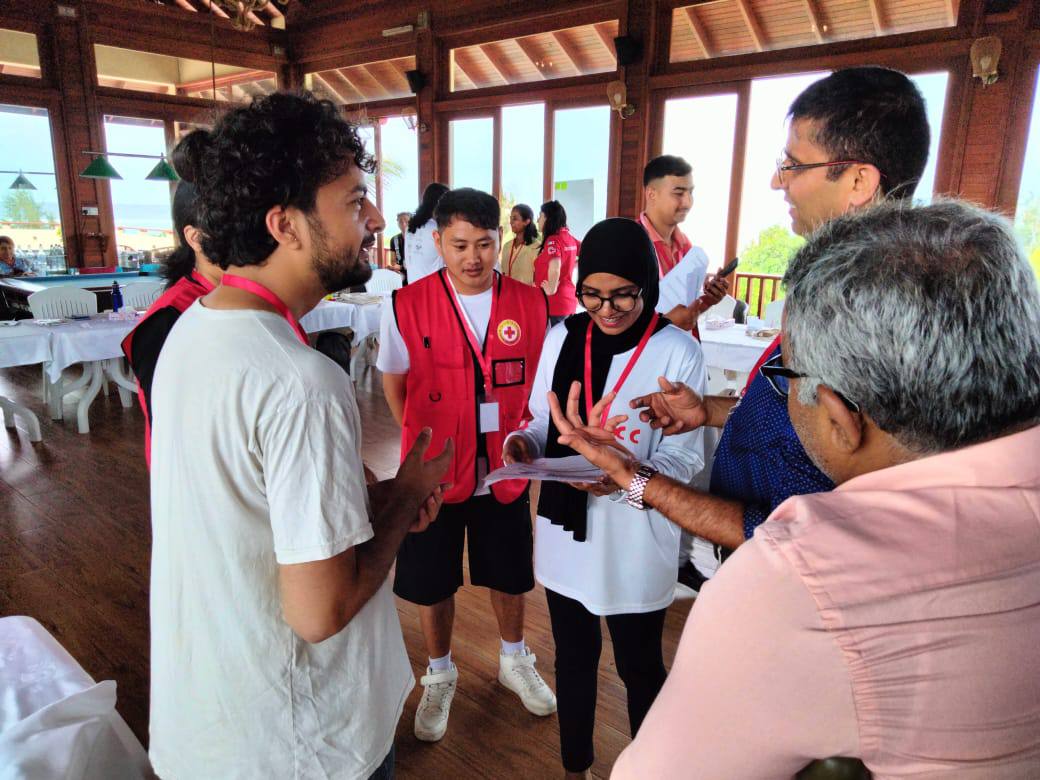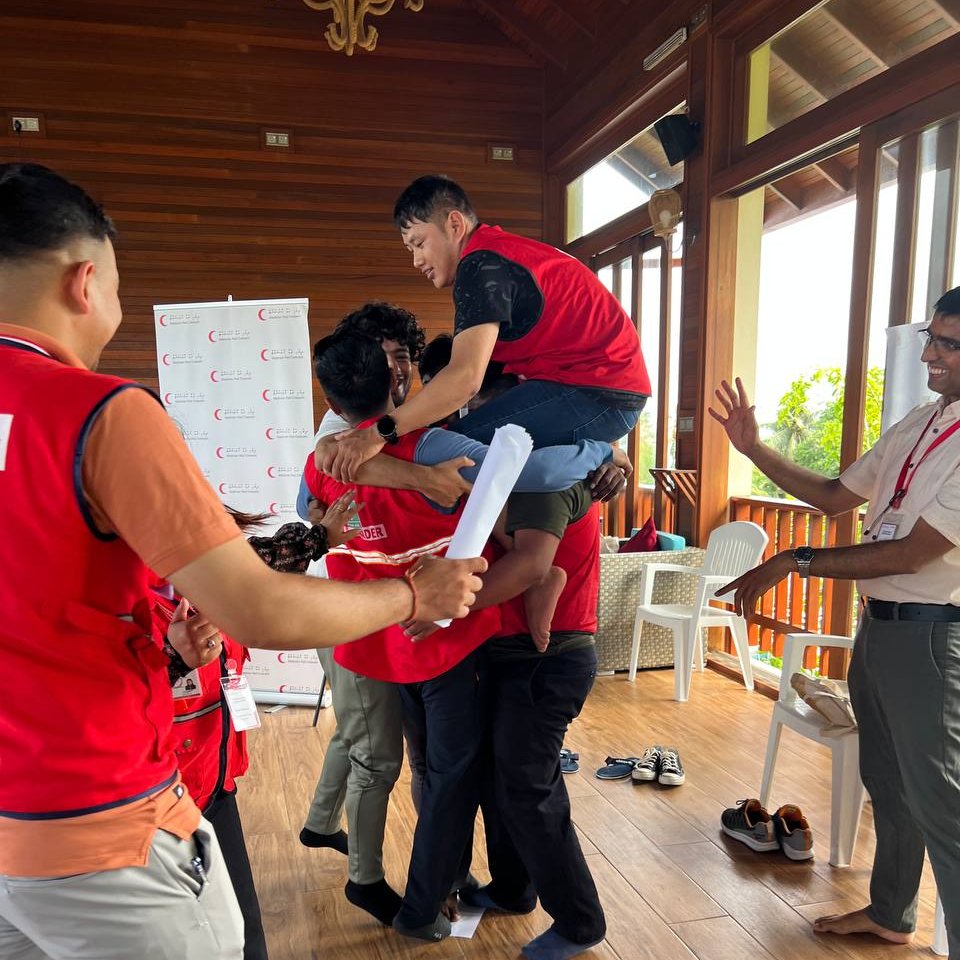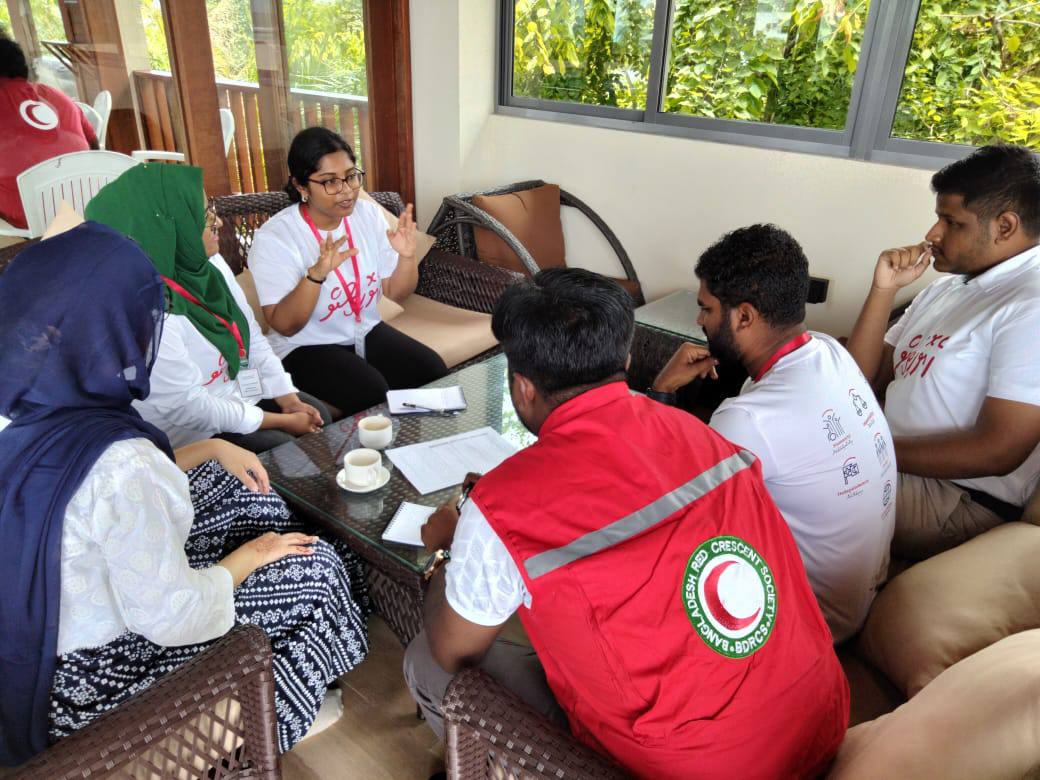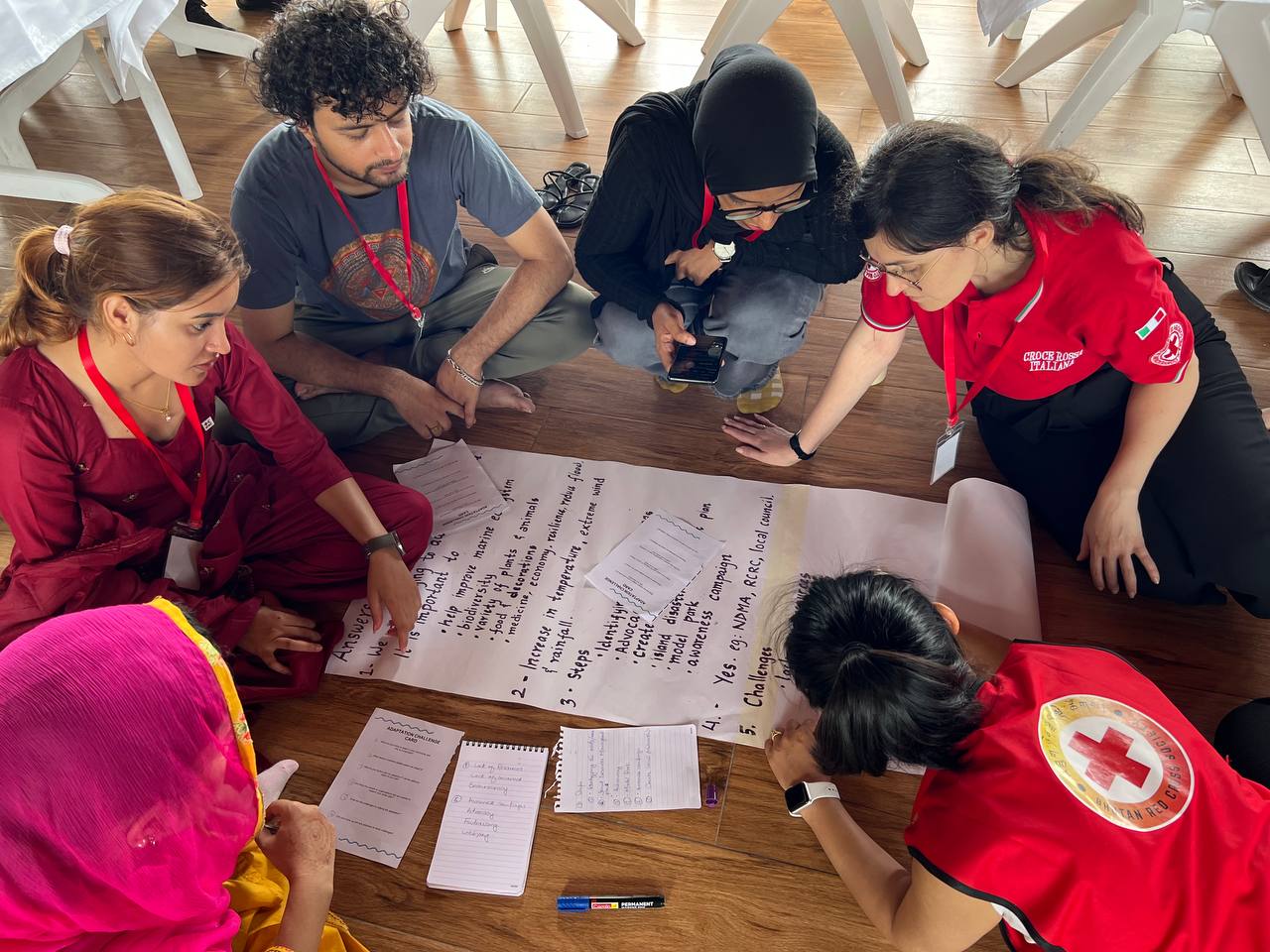Empowering Youth for Climate Action: Insights from Regional Y-Adapt Training of Facilitators in South Asia

Disaster and climate risk reduction are primary areas of focus for the IFRC. RCRC National Societies as auxiliaries to the government are uniquely positioned to address the consequences of the climate crisis. National Societies are present in communities before, during and after emergencies, and are adept at identifying local solutions to local needs.

‘Y-Adapt’, or 'Youth Adapt,' is a dynamic and game-based curriculum consisting of 7 modules that not only educates but also empowers youth to take meaningful action in their communities to combat the effects of climate change. This innovative program addresses a wide range of climate-related challenges, including rapid-onset events such as rainfall leading to flooding, to slower-onset issues such as extreme heat causing drought. Y-Adapt encourages youth to not only understand the complexities of climate change but to also develop and implement their own climate change adaptation and advocacy plans within their local communities.

As such, the training's two-phase structure provided participants with a comprehensive understanding of climate change and its adaptation in different contexts. In K. Dhiffushi, the focus was on rural communities, where the impacts of climate change can be distinctly different from urban areas. Understanding these nuances is crucial for creating effective adaptation strategies. Transitioning to Male', the capital of the Maldives, allowed participants to explore the urban context of climate change, highlighting the challenges and opportunities that arise in densely populated areas.
The training emphasized that while climate change communication involves education, information, and warnings at a surface level, its effectiveness lies in considering diverse experiences, cultural models, and underlying values. Therefore, the key is to tailor messages to resonate specifically with the audience. Identifying what fosters a personal connection to climate change is motivation for proactive action.

The final session involved a collaborative and practical exercise where participants were organized into country groups. The objective was for each group to formulate a draft proposal outlining the specific steps and strategies they would undertake to implement Y-Adapt in their respective countries. The participants were encouraged to draw upon the knowledge and skills acquired during the training sessions to tailor their proposals to the unique challenges and opportunities present in their home countries. Successful environmental adaptation is community-based and participatory, building on the priorities, knowledge, and capacities of local people.
"The Y-Adapt training has been a transformative experience, expanding my comprehension of the global climate crisis and highlighting the immediate requirement for grassroots action. Working with passionate individuals globally has offered valuable insights. My goal is to make a meaningful contribution to climate change adaptation efforts in my community and beyond, fostering a more resilient and sustainable future." - Ahnaf, Y-ADAPT Training Participant
"Y-Adapt is a unique learning experience that connects the past, present, and future of climate change. Through games and activities, I learned how the climate has changed over time and how it affects me and my community today. I also learned how to take action and adapt to the challenges and opportunities that lie ahead." - Shaiman, Y-ADAPT Training Participant
The Project: Strengthening Urban Youth Climate and Resilience Programming in South Asia
The Maldivian Red Crescent's sub-project, part of the broader initiative to strengthen urban youth climate and resilience programming in South Asia, aims to address critical climate change issues in the Maldives. The project strategically focuses on Male' City, Addu City, and Kulhudhuffushi City due to their susceptibility to the impacts of unplanned development and accelerated climate change. These issues include the rise in temperature, flooding and coastal erosion, and the impact of climate change on human health. The project aims to address these issues through youth-led initiatives, encompassing Y-Adapt Programs, mass provision of bucket hats to address extreme heat, coastal vegetation restoration for flooding and erosion mitigation, and a comprehensive public outreach campaign advocating for climate resilience and adaptation. This initiative also emphasizes on inclusivity, catering to the broader public, youth, women, persons with disabilities, and migrants, aligning with MRC's commitment to "leave no one behind" and promoting resilience-building across the entire community.